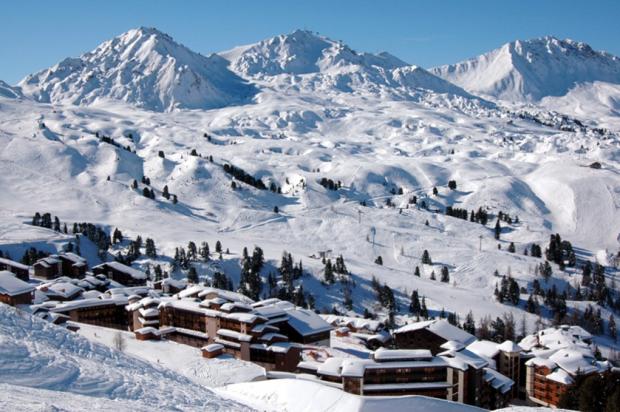Did you return from this year’s ski trip intent on owning a place in the French Alps? If so, there’s a bit more to think about when buying a ski home compared to a beach pad, so here are some tips to get you started…
Article written by The Overseas Guides Company
1) Your resort. Think about its ski area – both the size and altitude (over 2,000 metres for guaranteed snow), lift infrastructure, transfer time, the option of driving from the UK, winter and leisure activities, apres-ski and amenities, shopping, ski schools and creches.
2) Seasonality. Will you use the property when the snow has gone and during the summer? If so, you’ll want to be somewhere that doesn’t shut down outside of the winter season and with plenty to do in the warmer months.
3) Location in the resort. Ski-in ski-out properties within walking distance of lifts and the resort centre are always the most sought after. But your money goes further if you buy outside a resort or a short drive from the slopes.
4) Leaseback or outright purchase? For access to a convenient, well equipped and completely hassle-free ski property, consider leaseback – remembering to check your annual personal usage, the annual maintenance costs and what rental return you will receive. Many leaseback ‘residences’ come with a spa, pool and communal areas, and properties are typically bought off-plan or new. Otherwise, for complete flexibility and for somewhere you can make a true second home, buy outright the conventional way.
5) Rentals. If you intend to let your ski home, consider whether you will manage it yourself or through an agency, remembering to factor in any advertising costs and agency fees. Buying in a popular ski resort with a good snow record should deliver reliable rental yields – demand comes from the domestic (French) as well as international markets.
6) Currency. Remember, always use currency exchange specialist Smart Currency Exchange to exchange money and transfer euros to France. Why? You’ll get a better exchange rate than your high street bank and using a forward contract with them will allow you to minimize your exposure to the exchange rate during the buying process. This is especially useful right now, given the current the volatility in the currency markets caused by June’s EU Referendum.
7) Mortgages. French mortgage rates, for residents and non-residents, remain at historic lows, with typical rates between 2 and 3 per cent. Worked in tandem with the exchange rate, a mortgage might make financial sense for many buyers.
8) Ongoing costs. French properties come with two types of council tax (‘taxe foncière’ and ‘taxe d’habitation’). Remember to factor these into your running costs. Check out any discounts on seasonal ski passes and ski hire available to homeowners in a resort.
More info
For more information on buying skiing homes in France or overseas property in general, download the Overseas Guides Company’s free France Buying Guide, Spain Buying Guide, Italy Buying Guide, Portugal Buying Guide or USA Buying Guide – and start receiving free news updates by email.
If you are considering an overseas property purchase in 2016, whether for lifestyle or investment, opening a no-obligation account with FCA-authorised Smart Currency Exchange will enable you to benefit from their competitive exchange rates and specialist currency knowledge, ultimately saving you money and time. For more information, download Smart Currency Exchange’s free report or visit the Currency Zone.
